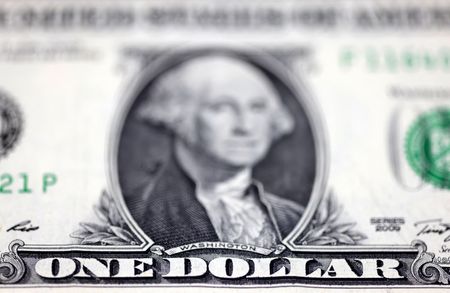 1
1 1
1

By Tom Westbrook
SINGAPORE (Reuters) – The dollar was on the front foot on Thursday after minutes from the Federal Reserve’s July meeting pointed to U.S. interest rates staying higher for longer to bring down inflation.
The greenback gained most against the Antipodeans, especially the Aussie, which was dragged down as weaker-than-expected wage growth weighed on Australia’s interest rate outlook.
The Australian dollar fell 1.2% overnight and on Thursday hovered at $0.6930, just above Wednesday’s one-week low of $0.6912 and the 50-day moving average at $0.6923.
Australian labour market data is due at 0130 GMT.
The New Zealand dollar also fell, losing nearly 1% to unwind an initial jump after the central bank hiked interest rates and steepened its projected rate-hike track. The greenback rose against the yen and sterling and was steady on the euro.
“The bigger picture for the dollar is that it’s in a strong uptrend,” said Matt Simpson, a senior analyst at brokerage City Index in Brisbane, adding it has now paused a weeks-long pullback
“In some ways, bulls are looking to step back in and I think the Fed minutes gave them a reason to do so.”
The dollar rose 0.6% on the yen overnight and held at 134.90 yen on Thursday. The euro bought $1.0184. The U.S. dollar index was steady at 106.570.
Federal Reserve officials saw “little evidence” late last month that U.S. inflation pressures were easing, the minutes showed. The minutes flagged an eventual slowdown in the pace of hikes, but not a switch to cuts in 2023 that traders until recently had priced in to interest-rate futures.
“Once a sufficiently restrictive level has been reached, they are going to stick to that level for some time,” Rabobank strategist Philip Marey said in a note to clients.
“This clearly stands in contrast to the early Fed pivot that the markets have been pricing in.”
Traders see about a 36% chance of a third consecutive 75 basis point Federal Reserve rate hike in September, and expect rates to hit a peak around 3.7% by March, and to hover around there until later in 2023.
Sterling also slid overnight after double-digit inflation focused investors’ concerns on recession risk.
Britain’s consumer price inflation rose to 10.1% in July, its highest since February 1982, official figures showed and after a brief blip higher sterling fell 0.4% to $1.2050. [GBP/]
It also dropped below its 200-day moving average against the euro.
“Do we get weaker sterling now, ahead of the inevitable recession? Or will sterling hold around here until rates peak and the economic disaster can dominate,” asked Societe Generale strategist Kit Juckes in a note.
“I am confident that we will make a new cycle low this year,” he said.
========================================================
Currency bid prices at 0032 GMT
Description RIC Last U.S. Close Pct Change YTD Pct High Bid Low Bid
Previous Change
Session
Euro/Dollar
$1.0184 $1.0178 +0.06% +0.00% +1.0185 +1.0173
Dollar/Yen
134.8200 134.9950 -0.06% +0.00% +135.1650 +134.9150
Euro/Yen
137.30 137.47 -0.12% +0.00% +137.5700 +137.3000
Dollar/Swiss
0.9505 0.9519 -0.12% +0.00% +0.9517 +0.9508
Sterling/Dollar
1.2052 1.2050 +0.00% +0.00% +1.2054 +1.2043
Dollar/Canadian
1.2920 1.2915 +0.00% +0.00% +1.2920 +1.2914
Aussie/Dollar
0.6937 0.6937 -0.02% +0.00% +0.6939 +0.6929
NZ
Dollar/Dollar 0.6283 0.6281 +0.02% +0.00% +0.6284 +0.6275
All spots
Tokyo spots
Europe spots
Volatilities
Tokyo Forex market info from BOJ
(Reporting by Tom Westbrook; editing by Richard Pullin)